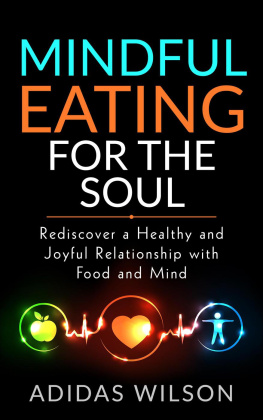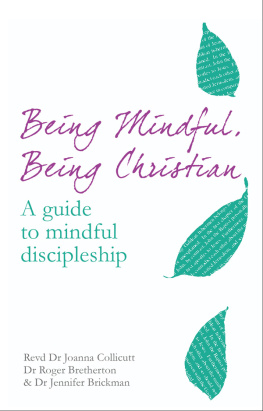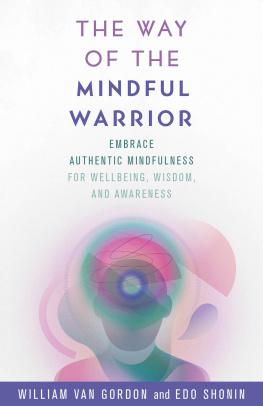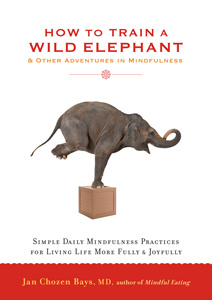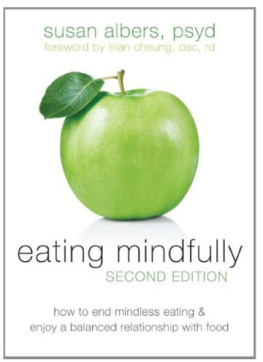Mindful Eating For The Soul - Rediscover A Healthy And Joyful Relationship With Food And Mind
Adidas Wilson
Published by Adidas Wilson, 2021.
While every precaution has been taken in the preparation of this book, the publisher assumes no responsibility for errors or omissions, or for damages resulting from the use of the information contained herein.
MINDFUL EATING FOR THE SOUL - REDISCOVER A HEALTHY AND JOYFUL RELATIONSHIP WITH FOOD AND MIND
First edition. January 26, 2021.
Copyright 2021 Adidas Wilson.
Written by Adidas Wilson.
10 9 8 7 6 5 4 3 2 1
Copyright 2021 by Adidas Wilson
All rights reserved. No part of this publication may be reproduced, distributed, or transmitted in any form or by any means, including photocopying, recording, or other electronic or mechanical methods, without the prior written permission of the publisher, except in the case of brief quotations embodied in critical reviews and certain other noncommercial uses permitted by copyright law. For permission requests, write to the publisher, addressed Attention: Permissions Coordinator, at the address below.
Adidas Wilson
P.O. Box 2266
Antioch, Tn. 37011
siriusvisionstudios@gmail.com
www.financierpro.com
I ntroduction
Ch. 1 Benefits of Mindfulness
Ch. 2 - Emotional Eating and How to Stop It
Ch. 3 - Healthy Eating
Ch. 4 - Choosing Healthy Fats
Ch. 5 - Choosing Healthy Protein
Ch. 6 - Heart-Healthy Diet Tips
Ch. 7 - How to Lose Weight and Keep It Off
Ch. 8 - The Mediterranean Diet
Ch. 9 - Cultivating Happiness
Ch. 10 -Building Better Mental Health
Ch. 11- Be A Warrior, Not A Worrier
Ch. 12 The Mental Health Benefits of Exercise
Ch. 13 - Stress Management
Conclusion
P aying attention to your eating experience can help you lose a few pounds, manage cravings, and even improve your diet. Mindful Eating: What Is It? Mindful eating can be described as aware of what you are drinking and eating. You observe how you feel as the drink or food goes into your body and signals such as fullness, satisfaction, and taste. With mindful eating, you do not judge any bodily sensations, thoughts, or feelings that you observe. Instead, you acknowledge and accept them. You can also extend this mindfulness beyond eating to buying, serving, and preparing the food. Life is terribly busy for many people and mealtimes are usually rushed. They find themselves eating while watching TV, working, or even commuting to or from work. You just shovel down food without caring whether you are hungry or not. Others eat to cope with unpleasant situations, relieve stress or emotional needs. This is the opposite of mindful eating.
Mindful eating does not involve perfection or strict rules. It just means that all your senses are focused and that you are present while shopping, preparing, serving, and consuming your food. Mindfulness is not everyones cup of tea. But for most people, mindful eating helps them become aware of their bodyeven by just doing it a few times a week. The Benefits of Mindful Eating - Being present as you eat allows you to savor the experience and your food. It can improve your digestion and translate to wise eating choices. With mindful eating you can: Slow down to ease anxiety and stress. Assess and improve your relationship with eating. You will notice when you start using food to satisfy more than just your hunger. Enjoy your food more. You can take time to appreciate your snacks and meals. Make better food choices by observing how different foods make you feel. Slow you are eating and improve digestion. Get full faster, consuming less food. Connect to your foods originthe journey from production to your plate. Eat healthier and in a more balanced manner. Practicing Mindful Eating - Mindfulness basically means being fully aware as you participate in something. When it comes to eating, you do not do it in auto-pilot mode or while watching TV, scrolling social media, or daydreaming. Instead, all your attention is on the food. And when your mind wanders, you bring it back gently. Start doing it for five minutes at a time and go from there. You can begin while browsing a menu or creating your shopping list.
Take several deep breaths and consider the foods health value, assessing each piece. As you eat, serve, cook, or shop, focus all your senses on the process. How does the food feel, smell and look? Pay attention to the sounds as it cooks and the taste while eating. Be curious about your body and the food. Relax and pay attention to your posture. Acknowledge your environment but tune it out. You do not want to be distracted.
Focus on your hunger. Are you hungry? Why do you want to eat that specific food? Make sure you are eating because you are hungry and not just bored. Appreciate the food in front of you and whoever you are eating with. Notice the smell, color, shape, and texture of the food. How does everything make you feel? Take a bite and pay attention. Identify the flavors and ingredients. Chew thoroughly, observing what it feels like. Do not take your mind off your experience and how it shifts. Are you starting to get full? Do not rush anything. As you chew, put down the utensils. Before you pick them up again, observe how you feel. Stop eating when you are full. Appreciate the food and where it came fromthe animals or plants and anyone responsible for producing, transporting, and preparing the food. Keep eating, slowly. Continue to pay attention and notice when you are full. Incorporating Mindful Eating into Your Life - Being mindful of every bite sounds unrealistic for most people. There is so much pressure and extraordinarily little time to eat. But this does not mean that you cannot be mindful. If you barely have the time, breathe deeply a few times before you eat. Focus on what you are about to eat and why you are eating it. Is the food healthy or just emotionally comforting? Are you hungry or anxious? When eating, take your eyes off the computer or your phone and focus on the food. Exploring Your Relationship with Food Through Mindful Eating - Food has a great impact on your well-being. It affects your mental, physical, and emotional life. It can drain you or energize you. It is not enough to know the healthy eating rules such as eat less sugar. You need to observe the emotional, mental, and physical effects of food on your body. You will find it easier to make healthier choices. Did that sugary snack make you feel better or more depressed? Use a diary and track different foods. Note down how you feel after eating a certain food. Assess that information after a while and come up with food combinations that promote your well-being. This may take some time and a bit of trial and error. Eating to Promote Your Wellbeing Vs Eating to Fill a Void - Many people use food to cope with feelings of loneliness, stress, boredom, anxiety, etc. The feeling signifies a void that needs to be filled. And if you use food to fill it, you will begin to ignore real hunger. Mindful eating helps you know when you start eating to meet an emotional need. Slowing down gives you time to determine why you really want to eat. You will assess how every meal or snack makes you feel. And after a while, you will stop eating just so you can feel full and start eating to gain energy. Before you eat, take deep breaths. Your body will relax, and feelings of hunger will be pacifiedespecially if it is not actual hunger. The Western culture is quickly embracing spirituality. Most people want to cultivate and explore an in-depth sense of belonging, purpose, and connection. What does it mean to be spiritually aware? How do you begin the spiritual development journey? Being aware has different meanings to different people. To some, it means being consciously aware of obvious things while to others it may mean human consciousness. In this context, it means being awareness itself. This can be correlated to mindfulness. Mindfulness is the practice or technique of staying focused on your actions, words, and thoughts. It is a skillset which allows you to disconnect from all the busyness of your daily life and focus on the present moment. Mindfulness can also be referred to as watchfulness. You become watchful of your behaviors, emotions, and mindset. You start paying attention to nature and the sensations that it causes in you. A point may come in your life when you desire to understand what is going on within. You feel compelled to seek out something bigger and more meaningful. You will get the nudge to reconnect with the purpose of your life, nurture a relationship with God, etc. You will desire to be spiritually aware. Starting out on a spiritual path has many benefits and it will positively impact your quality of life and personal growth. Maybe you have a personal reason as to why you want to dive into spirituality. Consider your reason and why this journey is important to you. Once that is out of the way, use the following tips to embark on the journey of spiritual awareness. Practicing meditation daily is a remarkably effective way to help you become spiritually aware. It involves slowing down and taking the time to be still. Through it, you disconnect from lifes chaos and dwell on the present moment; the here and now. There are different styles and approaches to meditation, and you should find the one that suits you best. Try out different approaches and settle for the one that works for you. When you start meditating, you will come face to face with your emotions at one point or another. This is not a bad thing. In this process, you will experience who you really are and knock against yourself occasionally. What does it mean to love yourself? A part of it is to celebrate your qualities, special gifts, and unique talents. Focus on your positive aspects rather than the negative ones. In this journey of spirituality, you may fall out with some people. However, you will attract like-minded friends. Watch out for these new relationships. Take time out of each day to appreciate what you have, your beautiful environment, past lessons, opportunities, and your loved ones. This will help you dwell on the present moment and you will realize how blessed you are.

